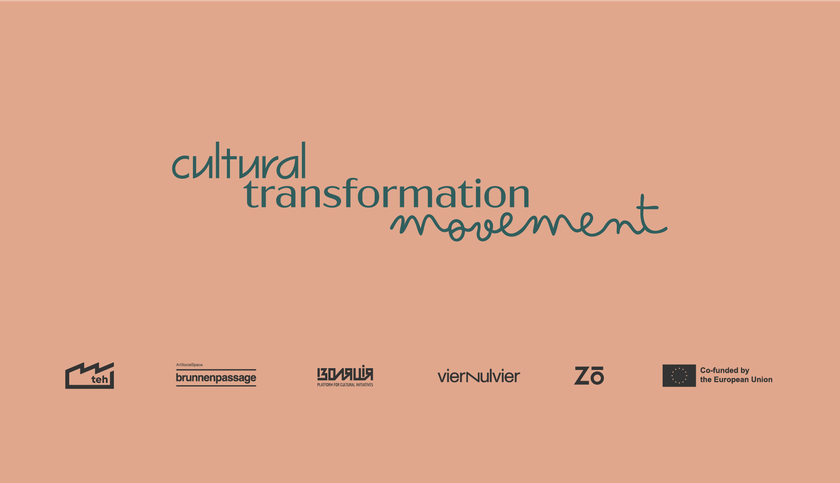CTM project #shares: 2025 Reflection Workshop in Sofia
What is CTM project?
Cultural Transformation Movement (CTM) project is a context-based process to diversify artistic production and its destination starting from within the organisation. It is led by Trans Europe Halles with four of TEH members, Brunnenpassage from Austria, VIERNULVIER from Belgium, Zo centro culture contemporanee from Italy, IZOLYATSIA. Platform for Cultural Initiatives from Ukraine. With the Cultural Transformation Movement project, we are taking real steps, making genuine commitments and openly sharing experiences with the other TEH members about how to make social justice a priority in arts, culture and creative industries. Funded by the Creative Europe programme of the European Union, the Cultural Transformation Movement project is designed for four years (2023-2027) and aims to transform the participating cultural organisations, so they include and reflect the full range of backgrounds and perspectives to be found in European society today.
What is Reflection Workshop?
Collective Reflection Workshop is an essential part of CTM project. Taking place twice a year: during TEH Annual Conference and TEH Camp Meeting, Reflection Workshop is facilitated by Laura Camacho Salgado, CTM Artistic Transformation Facilitator, and aims to provide a platform for CTM artists/agents-of-change (called #AoCs) from participating centers-of-change (called #CoCs) to meet together, reflect on their experiences with the local context and share their impressions, notes and major findings from the encounters with the local communities of the participating #CoCs in Italy, Belgium, Austria and Ukraine.
Reflection Workshop is a chance for #AoCs to learn from each other and develop collective approaches to proactively engage with the local context throughout the cultural transformation process towards social justice & across borders.
Reflection Workshop #5: A Workshop That Isn’t One
Inspired by the Manifesto of Change by the Artists/Agents of Change and building on previous interventions in Tartu and Epanomi, this workshop also drew inspiration from the long-term work of organisations such as Brunnenpassage (AT), VIERNULVIER (BE), IZOLYATSIA (UA), and Zō (IT).
The session began with a 5-minute multilingual sound collage curated by Kseniya Ulianova, composed of fragments of the Manifesto recorded by AoCs and ATF members. Laura then welcomed participants, introduced the CTM values, explained the background of the workshop, and outlined its structure. Special attention was given to situating the AoCs' work within broader movements of inclusion and justice.
Mira then led a series of non-verbal breathing and body-awareness exercises to ground participants in a shared presence, promoting introspection and bodily awareness as a foundation for engagement.
Following this, the Thematic Stations were introduced. This session was designed as a collective lab, facilitated by Laura and six Artists/Agents of Change, with participants rotating through three thematic stations:
- Embodied Connection, Storytelling & Cultural Rituals (Mira Bryssinck & Farila Neshat)
- Dynamics of Care, Safety & Trauma-Informed Dialogue (Kseniya Ulianova & Elie Laucher)
- Inclusion, Accessibility & Tools for Equity (Dounia Mahammed & Emanuele Miceli).
Each station was co-led by two facilitators and focused on a different dimension of cultural transformation. The workshop followed a structured yet flexible flow.
This session aimed to bring together AoCs, CTM partners, and participants from diverse communities to reflect and share experiences, while exchanging the methods used by AoCs when working with groups like refugees, LGBTQIA+ creatives, BiPOC artists, youth, and people with disabilities. It also focused on encouraging embodied, trauma-informed practices in cultural work, and co-creating strategies to support inclusion, care, accessibility, and decolonial thinking.
If you're interested in learning more about the outcomes, challenges, and insights from the workshop, feel free to check out the full report!

